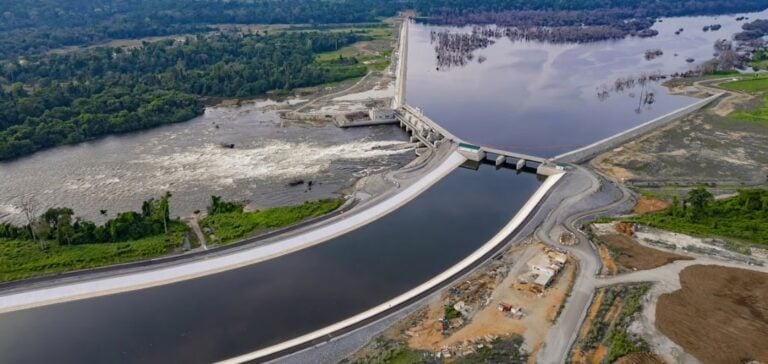Cameroon is strengthening the protection of its strategic infrastructure with the establishment of a military camp at the site of the Nachtigal hydropower dam. Located on the Sanaga River, this major energy project is nearing completion, with 98% of the work already finished.
The Nachtigal Hydro Power Company (NHPC), the entity managing the dam, confirmed that Cameroon’s Ministry of Defense has approved the installation of this 94-hectare base. The planned facilities will include housing, a medical center, a fire station, sports areas, and offices previously used by the Cameroonian construction firms and Elecnor involved in the project.
Strengthening energy security
This decision comes in a context where securing critical infrastructure is becoming a national priority. By deploying military units, authorities aim to prevent any threat that could disrupt the operation of this vital dam for the country’s economy and energy supply.
The Nachtigal dam is expected to play a crucial role in diversifying and increasing Cameroon’s energy capacity. Investments in this project align with a long-term vision to meet the growing needs of businesses and households.
An inter-institutional protocol
On December 18, protocols were signed between the Ministry of Defense, the co-contracting Cameroonian firms, and Elecnor. These agreements mark an important milestone in ensuring a smooth transition from the construction phase to the sustainable operation of the infrastructure.
The partial militarization of this site reflects a political and economic strategy aimed at stabilizing energy investments while creating a secure environment for local and international stakeholders operating in the sector.






















